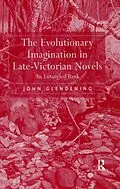Dominated by Darwinism and the numerous guises it assumed, evolutionary theory was a source of opportunities and difficulties for late Victorian novelists. Texts produced by Wells, Hardy, Stoker, and Conrad are exemplary in reflecting and participating in these challenges. Not only do they contend with evolutionary complications, John Glendening argues, but the complexities and entanglements of evolutionary theory, interacting with multiple cultural influences, thoroughly permeate the narrative, descriptive, and thematic fabric of each. All the books Glendening examines, from The Island of Doctor Moreau and Dracula to Heart of Darkness, address the interrelationship between order and chaos revealed and promoted by evolutionary thinking of the period. Glendening's particular focus is on how Darwinism informs novels in relation to a late Victorian culture that encouraged authors to stress, not objective truths illuminated by Darwinism, but rather the contingencies, uncertainties, and confusions generated by it and other forms of evolutionary theory.
Autorentext
John Glendening is Professor of English at the University of Montana, USA.
Inhalt
Contents: Prologue: Tierra del Fuego, 1832-33; Introduction; 'Green confusion': evolution and entanglement in Wells's The Island of Doctor Moreau; The entangled heroine of Hardy's Tess of the D'Urbervilles; What ' "modernity" cannot kill': evolution and primitivism in Stoker's Dracula; Death and the jungle in Conrad's early fiction; Conclusion; Epilogue: Galapagos 1835 (2004); Works cited; Index.
